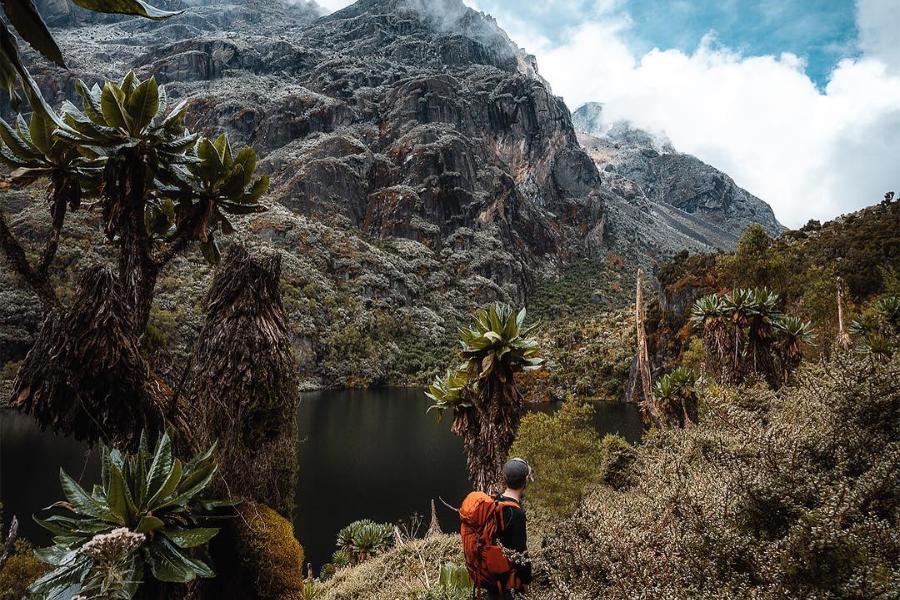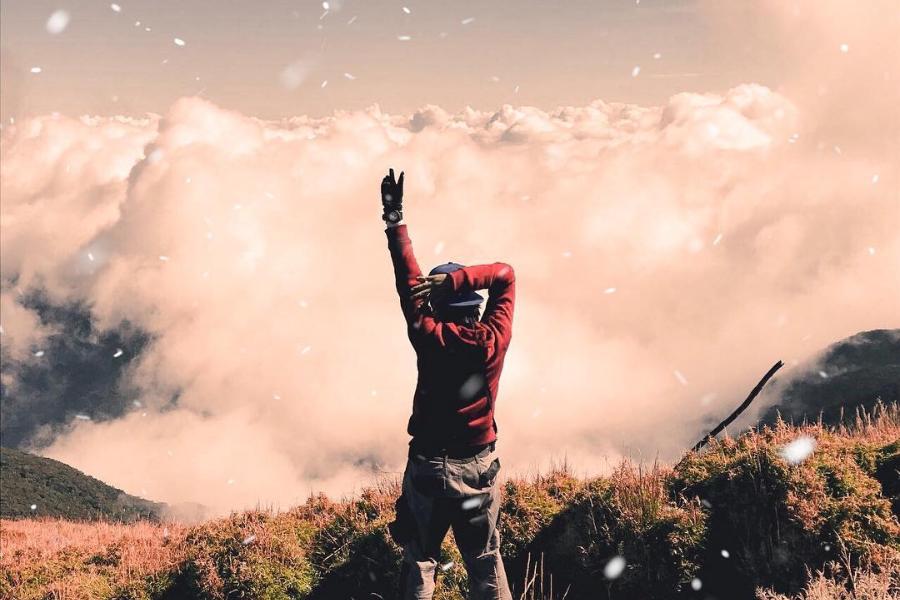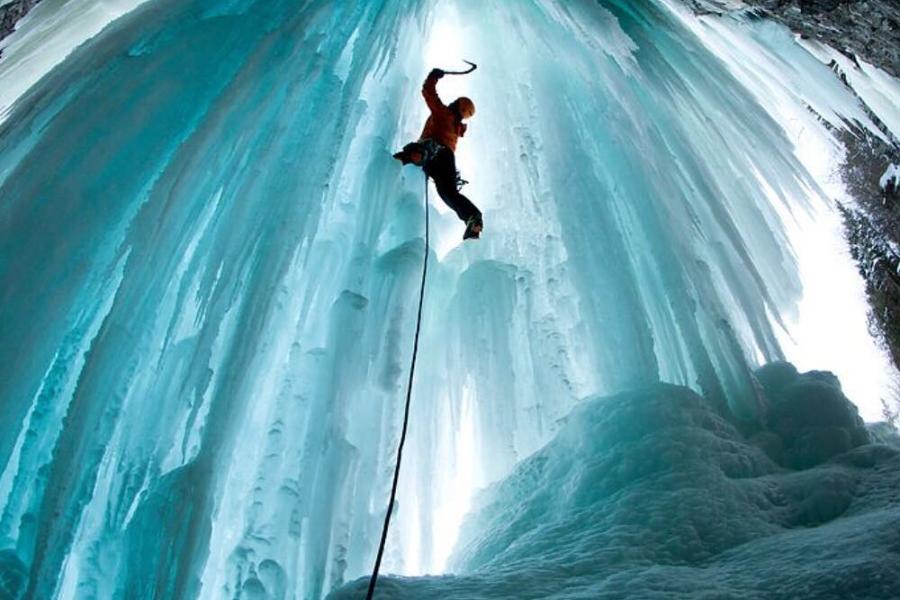Mountaineering at high altitude is an immense physical and emotional challenge. Mountain experiences can be enhanced by vigorous physical training, acclimatization to elevation, emotional preparedness and careful choice of food and drinks during the months of pre-climb training and while at altitude. Not only will food and fluids back your training program, but nutritious choices will promote tissue repair and recovery following your ascent.
Conceivably due to the enormous number of details involved in planning and undertaking a high altitude ascent, the consideration of mountaineering supplement and beverage options has often been over-looked. Fortunately, this is changing as emerging research reveals how important food and beverage choices are for maintaining strength in high endurance activities.

The most important kind of food to bring on a mountaineering adventure is energy-dense foods. These foods gas your body for the hard work it takes to scale the mountain range, and they also have you feeling full and energized to take on the job. The Committee on Military Nutrition Research recommends a high-carbohydrate diet, which can be especially beneficial in cold weather at high altitudes. The committee also notes that eating energy-dense carbohydrates might help you adapt to the high altitude and boost your athletic performance. Pack whole grains, like whole-wheat bread, dried fruit and vegetables, nuts and high-fiber bars as good sources of carbohydrates.
Mountain climbers and serious professionals can be at an increased risk for specific nutritional deficiencies, such as iron, calcium, and zinc. The physical effort necessary for climbing the peaks and the effects of the altitude can create these shortcomings. Beef or turkey jerky each supply a healthy dose of iron and zinc. Canned beans are also an excellent source of iron and zinc. Supplemented foods, such as cereal and grains, are high sources of all three of these nutrients. You might lose potassium and sodium if you sweat too much while you're climbing. Dried fruits are an excellent source of potassium and energy drinks can restore both potassium and sodium.
Powdered foods are helpful additions to your mountain climbing diet, and several of your choices are also nutrient and energy rich. The International Mountaineering and Climbing Federation encourages taking powdered eggs, milk, cheese, bouillon cubes, and dehydrated vegetables. Prepackaged foil-wrapped meals are an added option, but they tend to taste stale, which can dissuade you from eating plenty of high-energy food. Soup packages, powder biscuits, and chocolate bars are other recommended foods. Depending on where you're climbing, there may be roadside food stalls and hotels that offer food and meals as well.
Concerning the best suggestions for ongoing hikes and maintained energy. According to Carolyn Gunn, you should prepare for 4,000 calories per person per day, in the ratio of 65% carbs, 25% fat, and 10% protein that sums to about 1kg of food per person, per day, not including packaging. Expenditure can be as big as 6000 calories per day, depending on altitude, low temperatures, and work requirements for any given day. The raw energy demands increase 15-50% over that required at sea-level for comparable exertion, and will certainly depend on the size and sex of the individual. For example, a 120-pound female, won't require as much diet as an 180-pound male if they're working comparably. At the same time, diet intakes typically drop 15-50% through altitude exposure, depending on the speed of ascent and the individual's susceptivity to altitude sickness such as AMS (acute mountain sickness).

Interestingly enough, one research summary reported that women may have a real gain in elevation. In general, they suffer less severe indications of AMS and do not experience as great a dip in appetite and food consumption as do their male counterparts.
The key to success at elevation is to hydrate regularly, above all else. Dehydration worsens symptoms of altitude sickness and diminishes hunger further, so if you sense the start of a headache, try warding it off by a carb-loaded beverage (shoot for 3-4 liters a day, comprising 100-250g carbs in addition to your food calories). While water is usually the beverage of selection, some might need the regular, ongoing dose of carbs to help keep them going. Experiment to find what serves for you. The other key is to eat lots of food (or suck on hard candies or gum), as much as your body will allow. In fact, you'll see the recommendations below that cider, juice mixes, tea, cocoa, lemonade, Gatorade, soups, and the like all include plenty of water and carbs; the more per meal, the better.

To determine what might serve best for you, test out a variety of foods at altitudes above 10,000 feet and trash what doesn't appeal there, as it apparently won't get any more palatable leading up. Take the tastiest foods you can get, and plenty of different options, as you'll likely only get more finicky higher up. Try to ward off monotony as you can't imagine anything worse than holding the same food 4-5 days in a line if you didn't like it the first time you tried it. Try cooking the food as you will have to do in the field, also, test out no-cook meal when it's frozen to see if it's still edible. Check out additives to see if your system can work well on curry or different spices. You may notice that the chicken gumbo that was fine at base camp just doesn't interest you in the least at high camp.
Given below are some recommendations:
Energy bars, oats, Pop tarts, bagels, sweet rice, couscous, grape nuts, hot cocoa, cider, and tea.
Wheat thins, Ritz, Cheezits, bagels, cookies, rolls, jerky, sausages, cheese sticks, candy bars, nuts, dried fruits, flavored juice drink mixes, hard candy, fruit leather, fig bars, trail mix.
Cocoa, cider, hot jello, soups, and teas as the starter; freeze dried meals with rice, vegetables, noodles; instant rice, stuffing, or mashed potatoes; mousse or pudding for desserts.
 |
 |
 |
 |
Recent Post
Try the new FREE GiveAways Page
Something wrong ? Try refresh this page
Whitelist, remove adblock to see all the secrets. Once done, hit refresh button below.
 |
 |
 |
 |